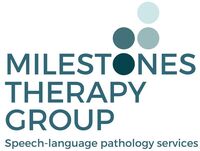Speech and language during a school closure, Part 1: How to find your child's IEP speech goals3/20/2020 Many parents and caregivers worry that their child’s communication skills could plateau or even regress during a school closure. As a speech-language pathologist, I share your concerns. My clients have worked hard to improve their articulation, master new vocabulary and grammatical forms, and develop their social communication skills. The last thing that any therapist or caregiver wants is to see these skills lost because a child is away from therapy for a few weeks or months.
Today’s post will focus on school-age children and teens, but I’m aware that others are also being affected by clinic closures and cancelations of outpatient hospital services. Future blog posts will include strategies for supporting communication among those groups, so stay tuned! So on to today’s post... How to find your child’s speech and language goals Today I will be helping parents of school-age kids to find the answer to the question: What are my child’s speech and language goals at school? Some of you may already be aware of the specific goals your child was working on during speech and language sessions at school. But if it’s been a while since your last IEP and you can’t quite recall what the most recent goals were, don’t worry! Here’s what you can do:
Speech/Articulation/Phonology Language Expressive/Receptive Language Semantics Syntax Morphology Pragmatics/Social Language Fluency Functional Communication/AAC If you find a goal with a name that sounds like one of these, it’s most likely a speech-language goal! Once you find your child’s current IEP goals, you are ready to start thinking about ways to help your child maintain their skills in those particular areas. My next post will give you some ideas for supporting your child in specific types of goals.
0 Comments
Leave a Reply. |
AuthorMy name is Breanna Blumer. I'm a licensed speech-language pathologist and the owner and clinical director of Milestones Therapy Group. ArchivesCategories |

 RSS Feed
RSS Feed